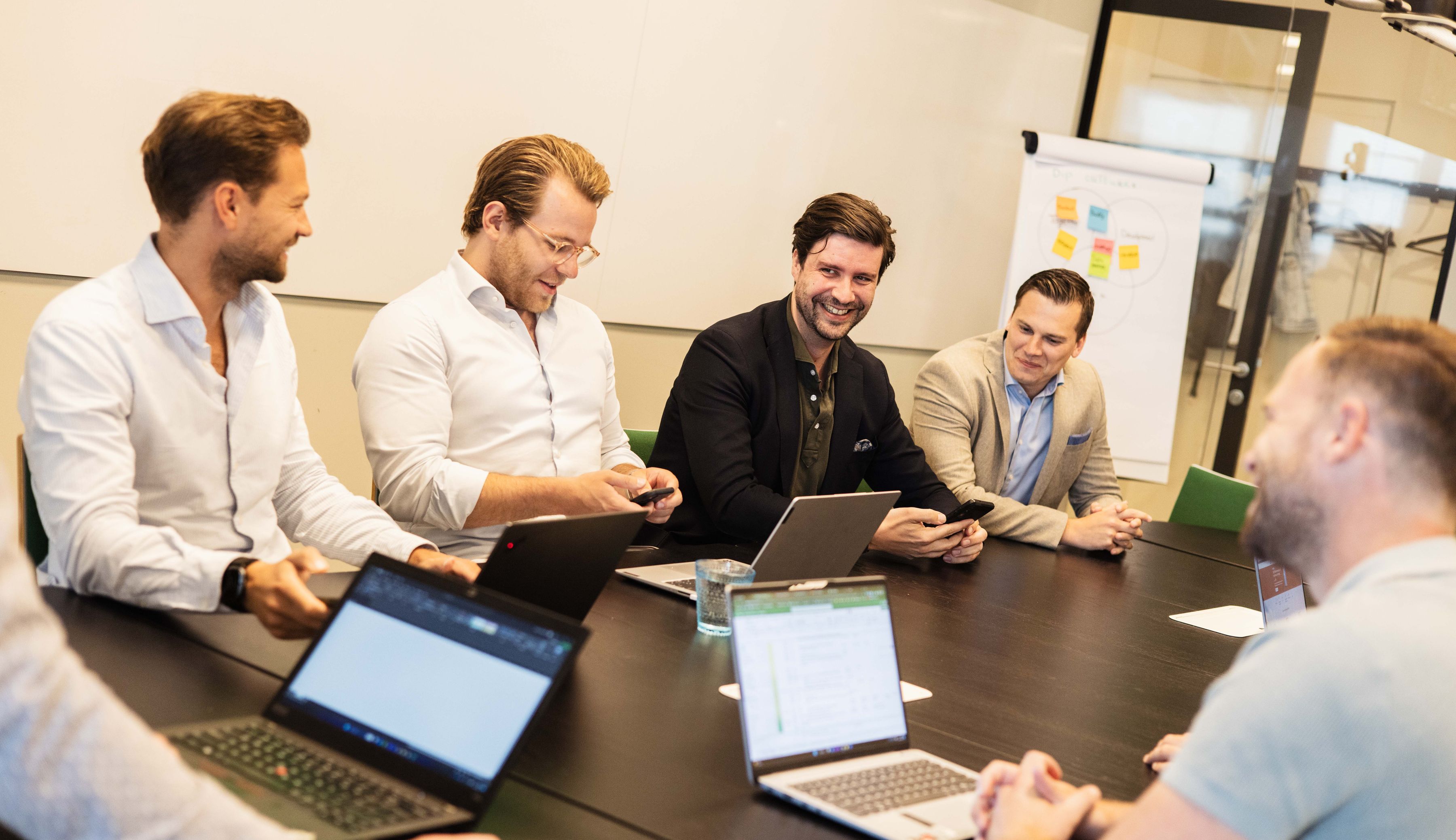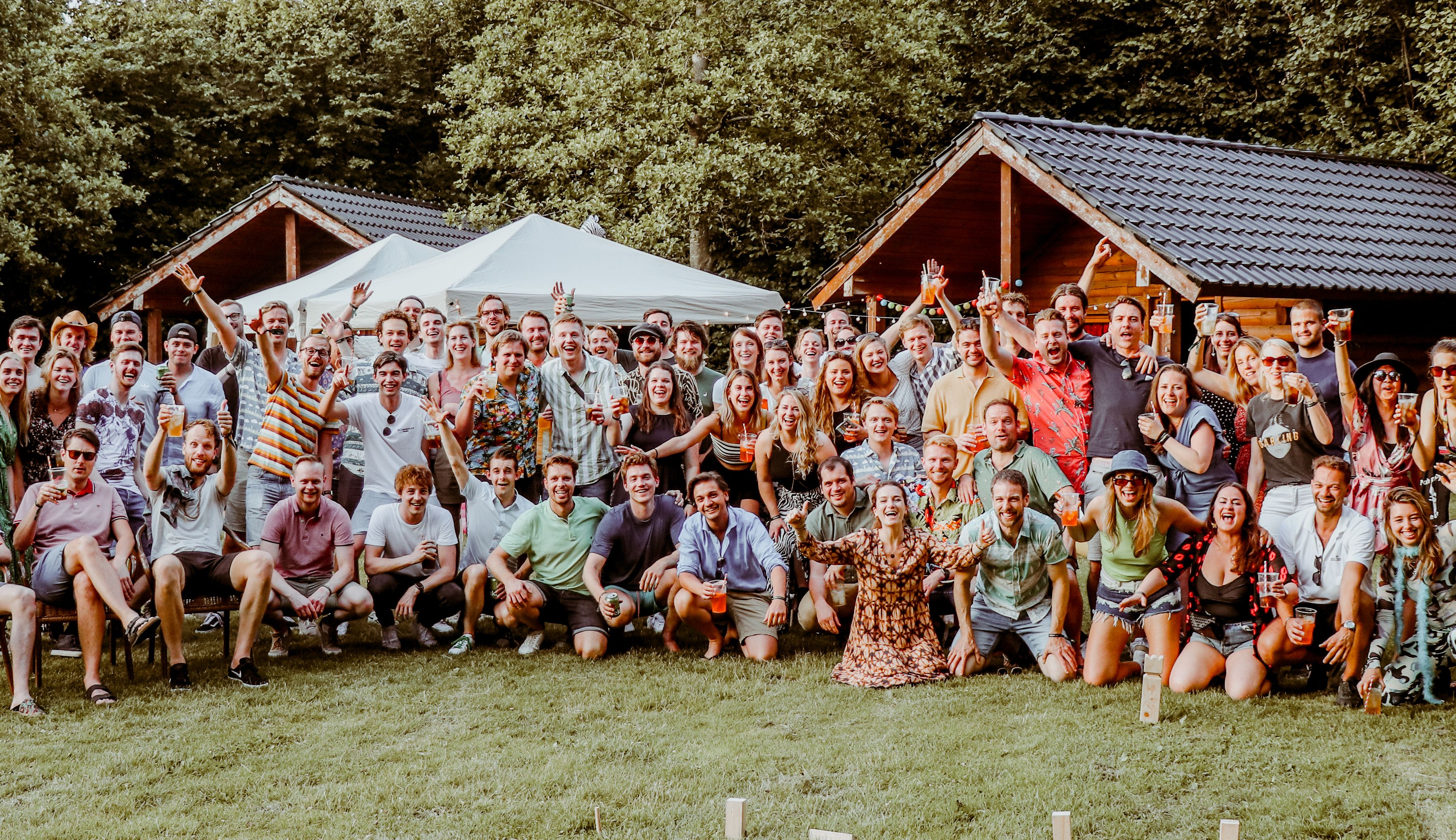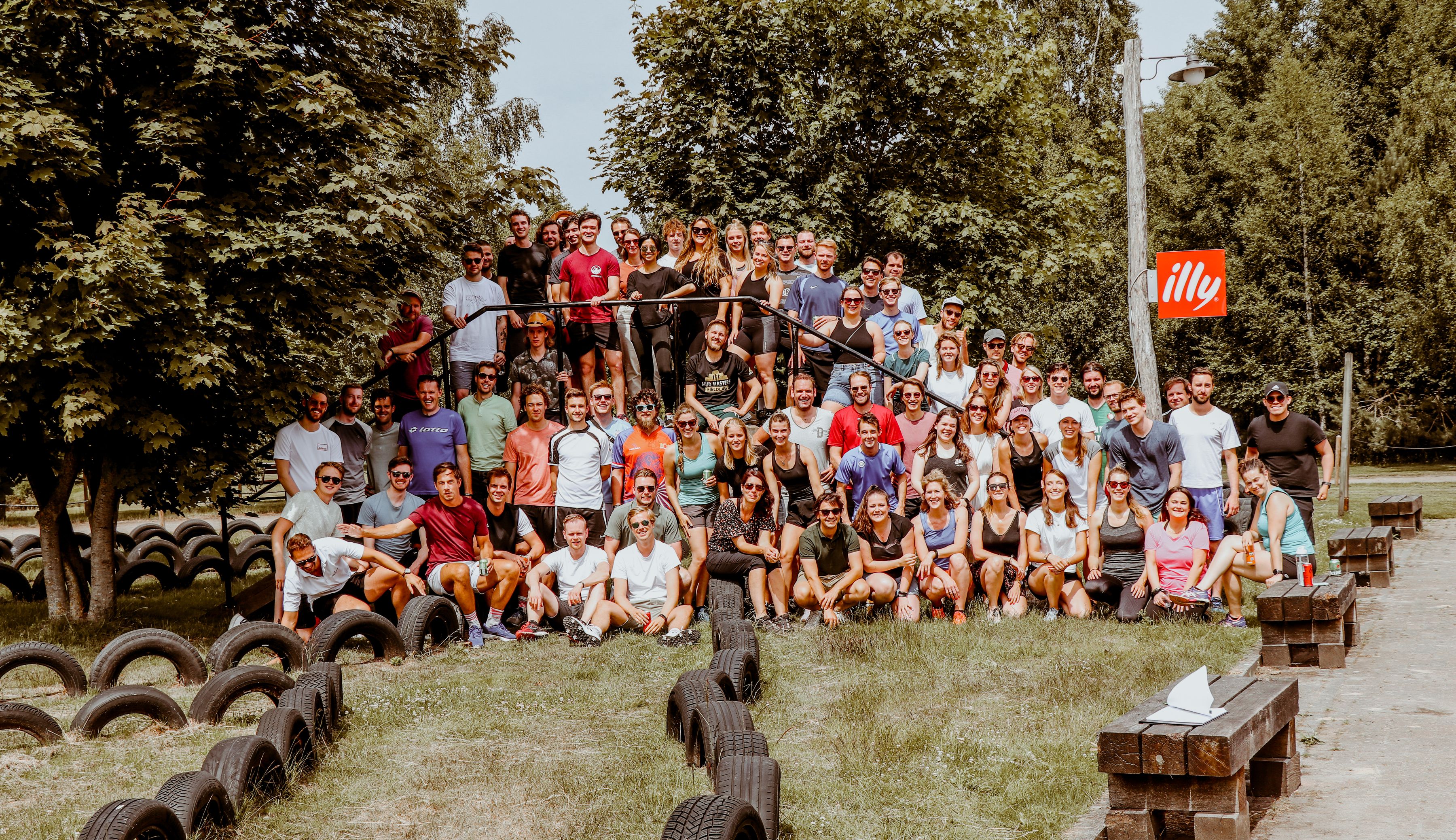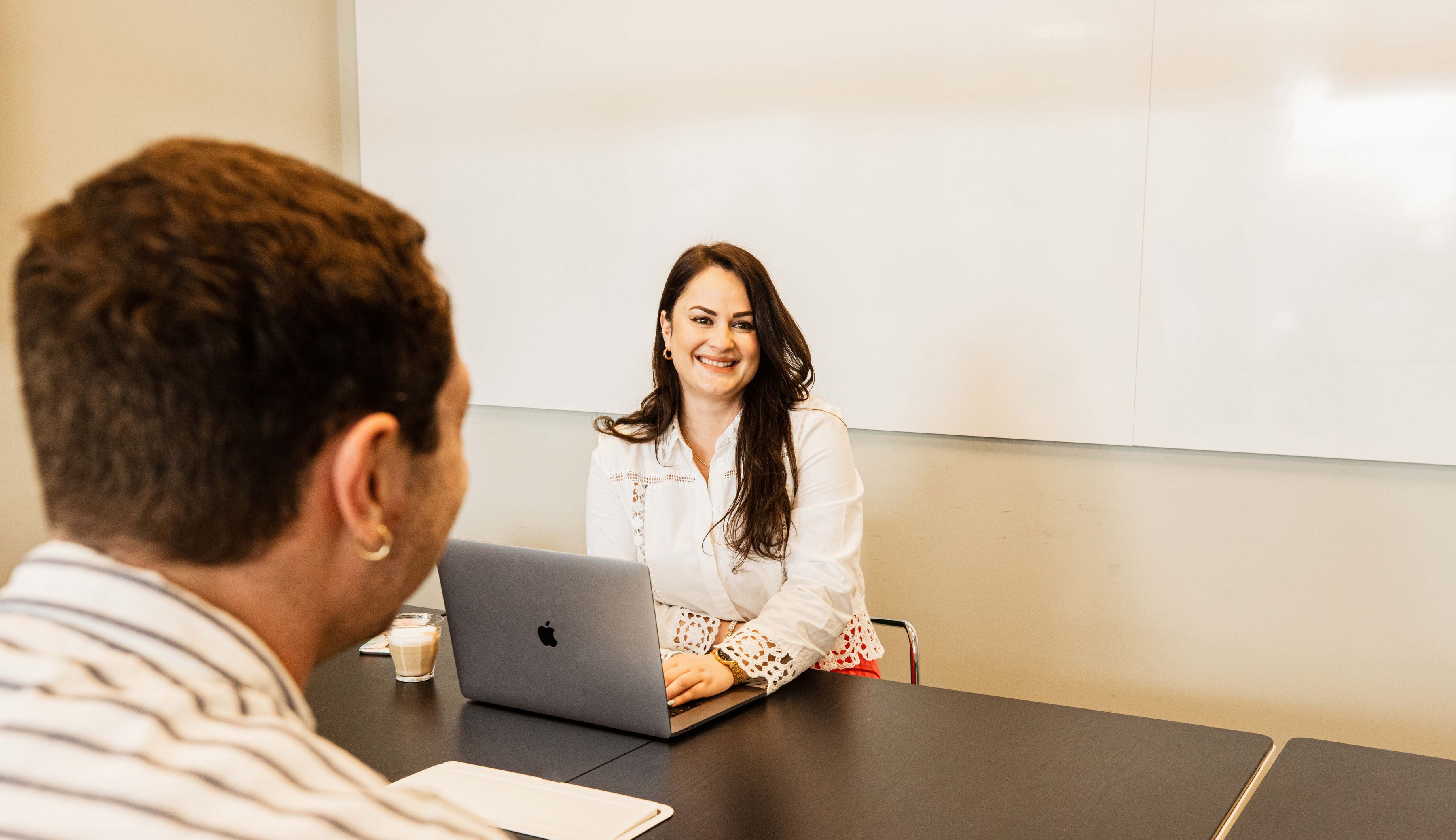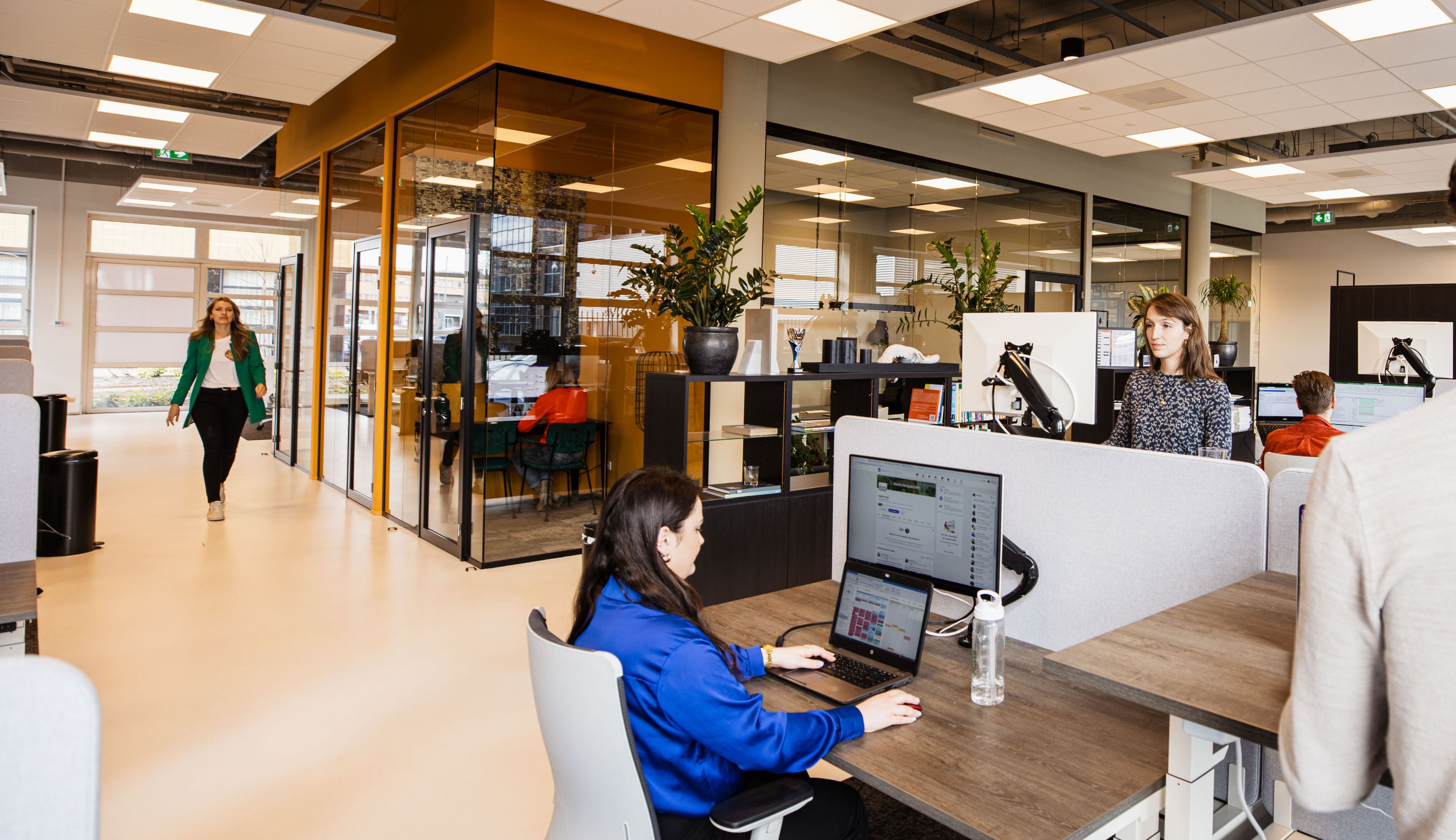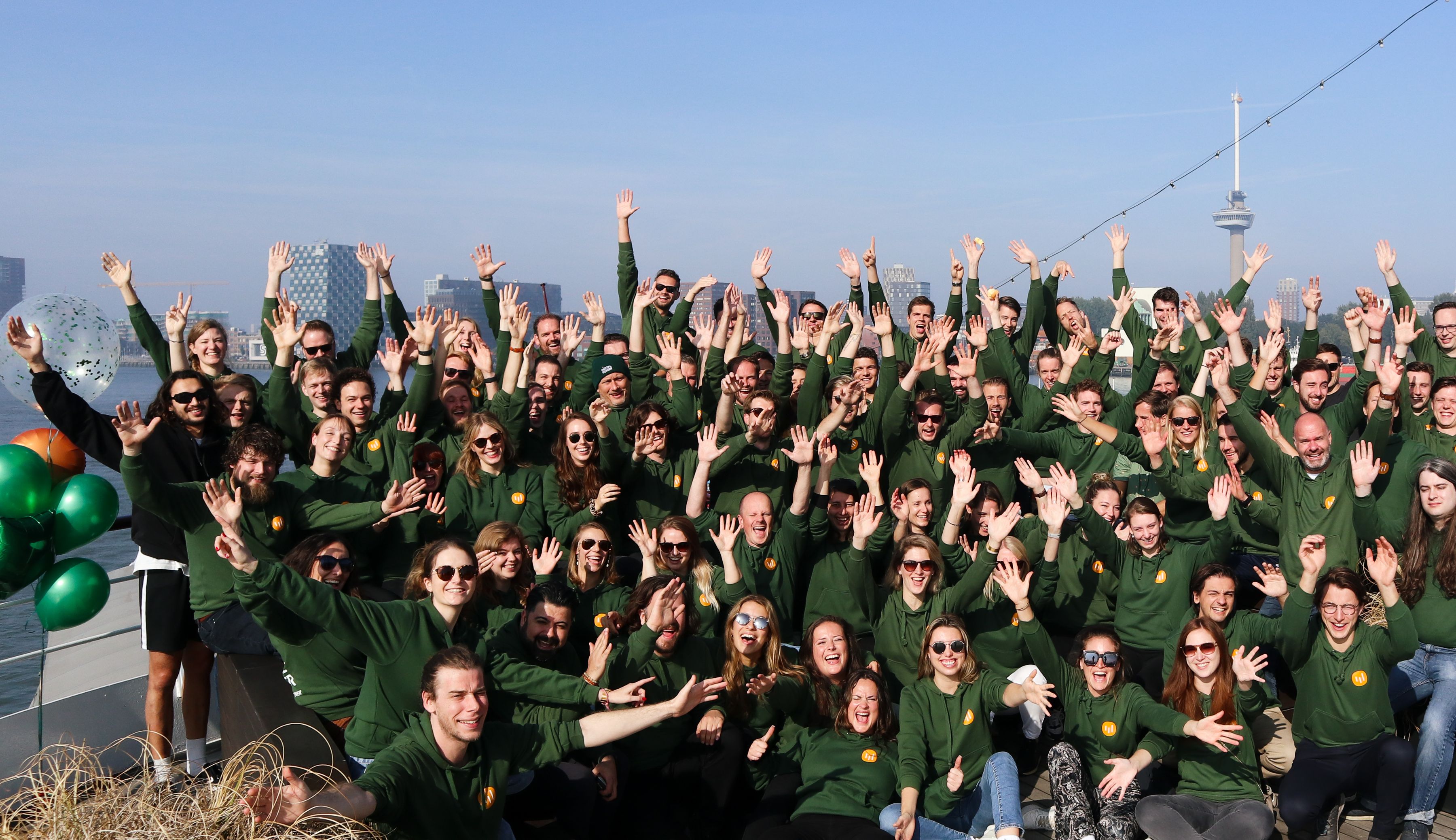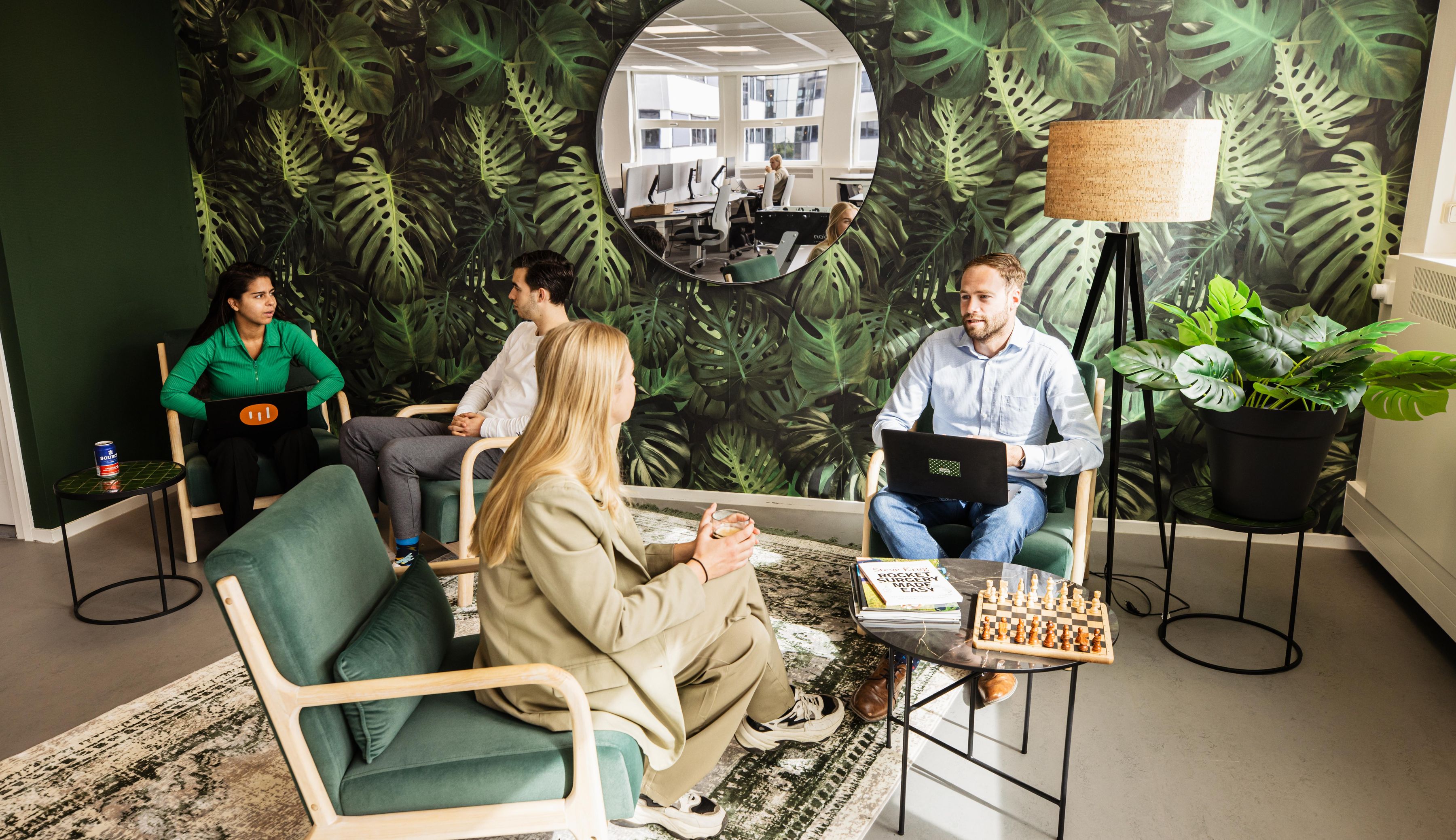Growing as a company by empowering your people
A podcast interview with Digital Power CEO René de Boer
- Podcast
- Our approach
- Working at
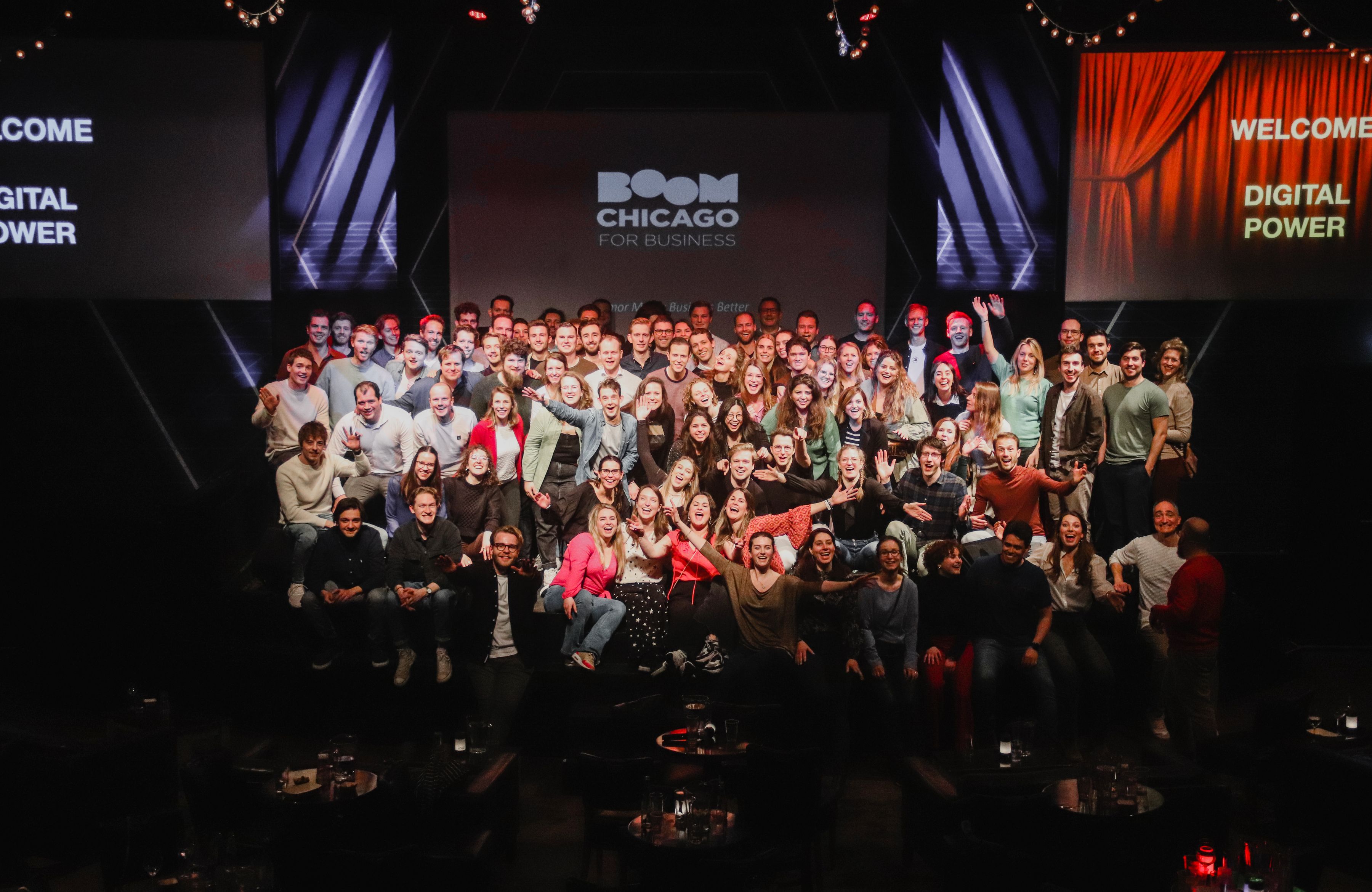
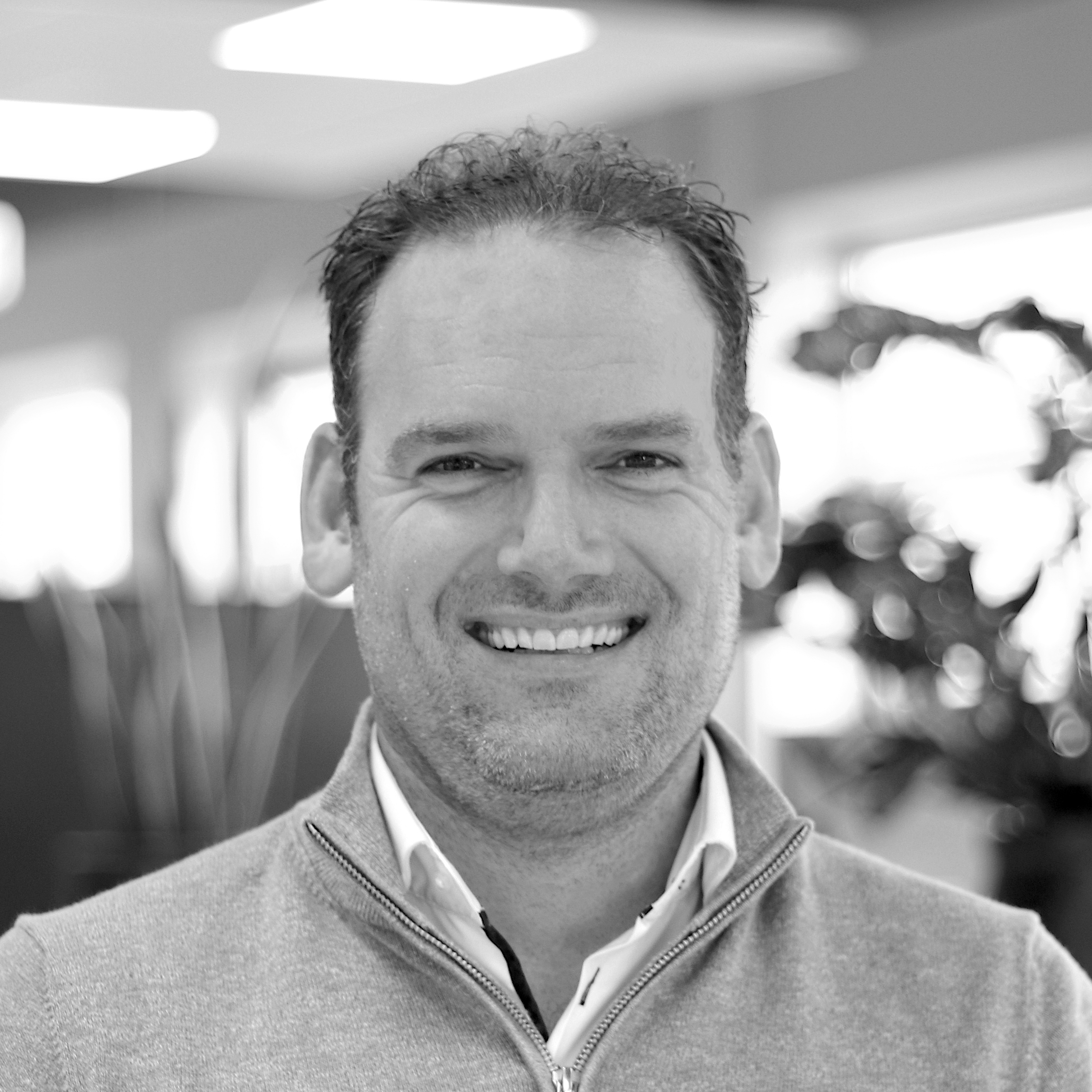
Putting development at the center of your company. Can you do that? Our CEO René de Boer was interviewed by Wilfred Prins for his podcast 'Leiders van Nu' (Leaders of Now). How do you build a culture that fosters connection? And what is the downside of making development a central focus in your company? René provides tips and shares his vision on leadership and entrepreneurship.
Listen to the Dutch podcast or scroll down to continue to read.
What is your background and how did you end up at Digital Power?
I have a background in civil engineering. After completing my studies, I joined a consultancy firm in this sector. When I was 28, I decided that I wanted to start my own business. We were acquired for the second time by a private equity firm. The company grew to 500 employees, and I found myself increasingly managing rather than being an entrepreneur. I enjoy empowering people and making something small into something bigger. This was my trigger to start my own business.
I pitched my idea using a beer coaster to my former director. It worked: eventually, in 2016, we acquired Digital Power together. At that time, the company had 18 employees. Now, it's around 140.
Focusing on collaboration with people and offering them opportunities. Where was this idea born?
My former director taught me that paying attention to people is incredibly important, especially in a consultancy firm where people are your most valuable asset. The consultants and staff together make up the company.
If you can't maintain a connection with people, you can't keep them on board. Personally, I always find it unfortunate when people leave. It has a significant impact on your company and team.
I like to look at people with the right attention. What are their strengths and what do they truly enjoy? Ideally, I want to turn an 8 into a 9: if you provide passionate people with good support, you can achieve great things together and grow as an organization.
How does that process work? Is it still possible to maintain a connection as you grow?
It becomes increasingly challenging. The COVID-19 pandemic hasn't helped in this regard. You saw less of people, which meant you knew less about what was going on with your colleagues.
We have now redesigned our operations. We have made teams smaller and appointed team leads who foster connection and help people develop. They engage with people at least once a month, discussing both personal and work-related matters. These aspects often intertwine, especially with remote work. This is a positive and accelerated development for us due to COVID-19.
How do you practically develop your people?
We no longer have performance reviews and evaluations. Our consultants do most of their work at the client's site, but the client may not always have the expertise to assess their performance accurately. That's why three colleagues started designing a process two years ago that allows individuals to progress based on feedback and development. They set their own development goals and gather feedback from clients and colleagues. This serves as evidence that they have worked on their development goals and shows the results. Colleagues are in control of their own development.
Of course, you receive guidance in setting your goals and approach. This is done within your 'golden triangle.' You choose colleagues who help you achieve specific development goals.
Becoming a coach in a golden triangle is not easy. You need the right skills, ask critical questions, and provide honest feedback. Giving feedback is particularly challenging, but if you do it with the aim of helping someone improve, it becomes something beautiful.
In the meantime, we know: feedback can be a bit uncomfortable. When you know that someone is giving it with genuine intentions to help you, it becomes easier to be open to it. We also provide internal training to improve giving and receiving feedback.
How do you check if people are truly engaged in their development?
Everyone is required to have a golden triangle. We have a Development Manager who monitors this among other things. If you cannot demonstrate that you have been developing yourself, you won't receive a salary increase.
There is always room for improvement. We usually aim for 80-90% and we are honest about the fact that we may not achieve 100% right away. We need to keep developing continuously.
What I really appreciate is when colleagues come up with new initiatives. We then give them the responsibility and trust to execute those initiatives. Giving people the freedom and responsibility to make the company better is what I strive for.
How long does it take to establish this culture of development and taking initiative?
It has been a crucial theme right from the start for me. During job interviews, we already discuss this culture. We prioritize our people because they form our organization. Culture goes beyond having a game of table football and a fun Friday afternoon drink, which many other companies have.
In 2020, we started working with an external party to define our culture. The outcome of that process resulted in three important core values: collaboration, development, and moving from data to action. The exact meaning of these values may vary for each individual. There are also some differences between our locations in Amsterdam and Den Bosch, and it's actually good to have those differences.
The culture is ingrained in our DNA, and we work on it daily. The key is to hire the right people and have culture carriers in your team. We do things together and offer each other all the help we can. For instance, if someone asks a question through Teams, it's almost like a competition to be the first to answer.
What is your perspective on leadership compared to the past?
There have been significant changes in recent years. In the past, it was more like "you ask, we deliver." The current and future generations have a different mindset. I sometimes find it challenging to keep up with these changes. People we now hire straight out of school often start with a 32 or 36-hour workweek. When I started working, part-time work was hardly an option.
Providing space for such choices is one of the many small examples that make you an attractive employer.
In leadership, it is important to have a form of adaptability. The best thing about our company is our mindset. We can either resist changes or engage in conversations about how to deal with them. Since we spend a significant portion of our time at work, it should be somewhat enjoyable. Life is too short to be grumpy at work.
What do you see as the downside of this approach?
From the beginning, I always wanted to involve everyone and ask for their opinions. This was important from the start. As you grow further, your team eventually consists of people who know your entire history, people who are just joining, and everything in between.
What you notice now is that as the management team, and as the director, we can't involve everyone in decisions anymore because we have grown larger. We have created a setting where everyone is entitled to have their say. This is still a good foundation, but the bigger you become, the smaller the chance that you can get everyone on board.
I am convinced that it is beneficial for people when decisions are made at a certain point. We now spend a lot of time providing context. Communication is key in this regard. If you take the time to involve people, they usually understand. However, that doesn't mean they will necessarily agree with you.
If you don't set boundaries, you can't blame people for crossing them. It is good to push the boundaries because that brings about change.
Our goal is to grow to 200 employees by the end of 2024 while retaining the current team. This is a quantitative objective, but we can only achieve it if we also grow qualitatively. Even if we reach 180, I would already be very satisfied, as long as we have fun, develop as individuals and as an organization, and have a healthy company.
What is the biggest challenge in this regard?
Organizing the operation in a way that allows us to maintain the right connection with people and facilitate growth.
What tips do you have from your own success formula?
Continue to believe in the steps you are taking, no matter how many questions or criticisms you receive. Taking the time to involve people will pay off in the long run. This is also how you keep people on board.
Another way we do this is through our participation model. Since 2019, all colleagues, consultants, and staff can become co-owners of Digital Power. Currently, there are 30 co-owners. The fact that people invest in your organization for the long term brings comfort. It shows their trust in your organization, and I am incredibly proud of this.
This is an interview with René de Boer, CEO of Digital Power
As CEO, René is responsible for the day-to-day management of Digital Power. He plays a connecting role within and outside the organisation. As a spider in the web, he is a team player who ensures an optimal working environment in which we can do challenging projects together, with the right attention for the development of individuals and our organisation.
Receive data insights, use cases and behind-the-scenes peeks once a month?
Sign up for our email list and stay 'up to data':
